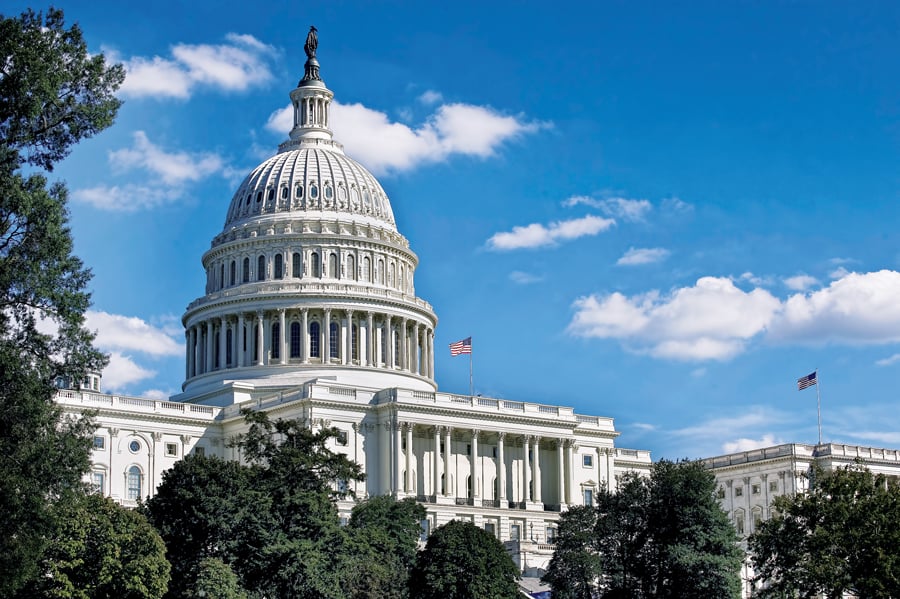

Clients who are inclined to give a lot of money to charitable causes can have a turbocharged philanthropic year thanks to coronavirus stimulus legislation.
The CARES Act, the $2.2 trillion recovery bill signed into law in late March, includes several provisions to spur charitable giving. For instance, it allows taxpayers who itemize to deduct up to 100% of their adjusted gross income for cash contributions to public charities. That’s an increase from the usual 60% cap. An individual who doesn’t itemize can take a $300 “above the line” deduction for cash contributions to public charities.
“If you’re looking to maximize the benefit of your charitable contributions, this is the year to do it,” said Dean Mioli, director of investment planning at SEI, which provides asset management and wealth management outsourcing. “These deductions are worth quite a lot.”
The sky is the limit if a client’s donations pile up that high.
“If you give a lot of money to charity then these provisions are quite significant in that you would be allowed to offset all of your income if you choose,” Colleen Carcone, director of wealth planning strategies at TIAA, wrote in an email.
But the full AGI deduction comes with important restrictions. In addition to the contribution having to be made in cash — securities and other assets don’t count — it also must go directly to a public charity and cannot be made to a 509(a)(3) supporting organization or be put into a donor advised fund.
Financial advisers have to pay attention to the details, said Richard Pon, who owns an eponymous advisory and CPA firm. They should avoid setting expectations too high if they don’t also make clear what parameters a client must meet before getting a big deduction.
“It’s of huge importance,” Pon said. “You don’t want an angry client coming in next April.”
Mioli recommends that clients combine their charitable contributions this year with other tax strategies, such as converting traditional individual retirement accounts into Roth IRAs.
“My Roth conversion is covered by my charitable contributions,” Mioli said. “You’re creating a tax-savings powerhouse.”
The CARES Act has changed, at least for this year, one approach to charitable giving. The legislation eliminated required minimum distributions from IRAs. In a normal year, those are sometimes used for philanthropic giving.
“If you were considering a qualified charitable distribution to satisfy your RMD, it might also make sense from a tax efficiency perspective to instead use appreciated assets or cash from a taxable account to satisfy the charitable intent in 2020,” said Dan Rinzema, chief client officer at Greenleaf Trust.
The lack of RMDs this year could change the giving landscape.
“In other years you would look to a [qualified charitable distribution] for the immediate tax benefit of offsetting your retirement income,” Carcone said. “If you have no retirement income for the year, you can probably get a more significant tax benefit by looking at other ways of giving. “
If the goal of the CARES Act was to generate a higher level of charitable giving this year due to the pandemic, it’s unclear whether it will work.
Rinzema’s clients already donate a lot to charity.
“The added tax benefit is great, but I’m not sure it’s spurring them to action; the intent to act was already there,” Rinzema said.
But the direction of giving has changed due to the outbreak.
“We’re seeing quite a bit more focus on food banks and community relief funds,” Rinzema said.

Integrated Partners is adding a mother-son tandem to its network in Missouri as Kestra onboards a father-son advisor duo from UBS.

Futures indicate stocks will build on Tuesday's rally.

Cost of living still tops concerns about negative impacts on personal finances

Financial advisors remain vital allies even as DIY investing grows

A trade deal would mean significant cut in tariffs but 'it wont be zero'.
RIAs face rising regulatory pressure in 2025. Forward-looking firms are responding with embedded technology, not more paperwork.
As inheritances are set to reshape client portfolios and next-gen heirs demand digital-first experiences, firms are retooling their wealth tech stacks and succession models in real time.
